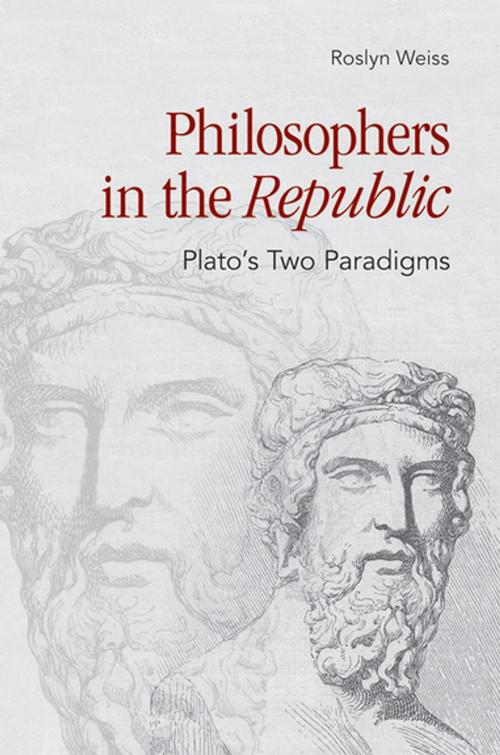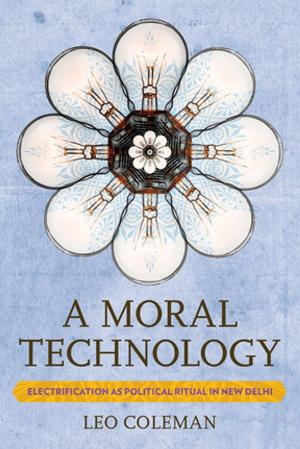Philosophers in the "Republic"
Plato's Two Paradigms
Nonfiction, Religion & Spirituality, Philosophy, Ancient, Political| Author: | Roslyn Weiss | ISBN: | 9780801465611 |
| Publisher: | Cornell University Press | Publication: | August 16, 2012 |
| Imprint: | Cornell University Press | Language: | English |
| Author: | Roslyn Weiss |
| ISBN: | 9780801465611 |
| Publisher: | Cornell University Press |
| Publication: | August 16, 2012 |
| Imprint: | Cornell University Press |
| Language: | English |
In Plato’s Republic Socrates contends that philosophers make the best rulers because only they behold with their mind’s eye the eternal and purely intelligible Forms of the Just, the Noble, and the Good. When, in addition, these men and women are endowed with a vast array of moral, intellectual, and personal virtues and are appropriately educated, surely no one could doubt the wisdom of entrusting to them the governance of cities. Although it is widely—and reasonably—assumed that all the Republic’s philosophers are the same, Roslyn Weiss argues in this boldly original book that the Republic actually contains two distinct and irreconcilable portrayals of the philosopher.
According to Weiss, Plato’s two paradigms of the philosopher are the "philosopher by nature" and the "philosopher by design." Philosophers by design, as the allegory of the Cave vividly shows, must be forcibly dragged from the material world of pleasure to the sublime realm of the intellect, and from there back down again to the "Cave" to rule the beautiful city envisioned by Socrates and his interlocutors. Yet philosophers by nature, described earlier in the Republic, are distinguished by their natural yearning to encounter the transcendent realm of pure Forms, as well as by a willingness to serve others—at least under appropriate circumstances. In contrast to both sets of philosophers stands Socrates, who represents a third paradigm, one, however, that is no more than hinted at in the Republic. As a man who not only loves "what is" but is also utterly devoted to the justice of others—even at great personal cost—Socrates surpasses both the philosophers by design and the philosophers by nature. By shedding light on an aspect of the Republic that has escaped notice, Weiss’s new interpretation will challenge Plato scholars to revisit their assumptions about Plato’s moral and political philosophy.
In Plato’s Republic Socrates contends that philosophers make the best rulers because only they behold with their mind’s eye the eternal and purely intelligible Forms of the Just, the Noble, and the Good. When, in addition, these men and women are endowed with a vast array of moral, intellectual, and personal virtues and are appropriately educated, surely no one could doubt the wisdom of entrusting to them the governance of cities. Although it is widely—and reasonably—assumed that all the Republic’s philosophers are the same, Roslyn Weiss argues in this boldly original book that the Republic actually contains two distinct and irreconcilable portrayals of the philosopher.
According to Weiss, Plato’s two paradigms of the philosopher are the "philosopher by nature" and the "philosopher by design." Philosophers by design, as the allegory of the Cave vividly shows, must be forcibly dragged from the material world of pleasure to the sublime realm of the intellect, and from there back down again to the "Cave" to rule the beautiful city envisioned by Socrates and his interlocutors. Yet philosophers by nature, described earlier in the Republic, are distinguished by their natural yearning to encounter the transcendent realm of pure Forms, as well as by a willingness to serve others—at least under appropriate circumstances. In contrast to both sets of philosophers stands Socrates, who represents a third paradigm, one, however, that is no more than hinted at in the Republic. As a man who not only loves "what is" but is also utterly devoted to the justice of others—even at great personal cost—Socrates surpasses both the philosophers by design and the philosophers by nature. By shedding light on an aspect of the Republic that has escaped notice, Weiss’s new interpretation will challenge Plato scholars to revisit their assumptions about Plato’s moral and political philosophy.















